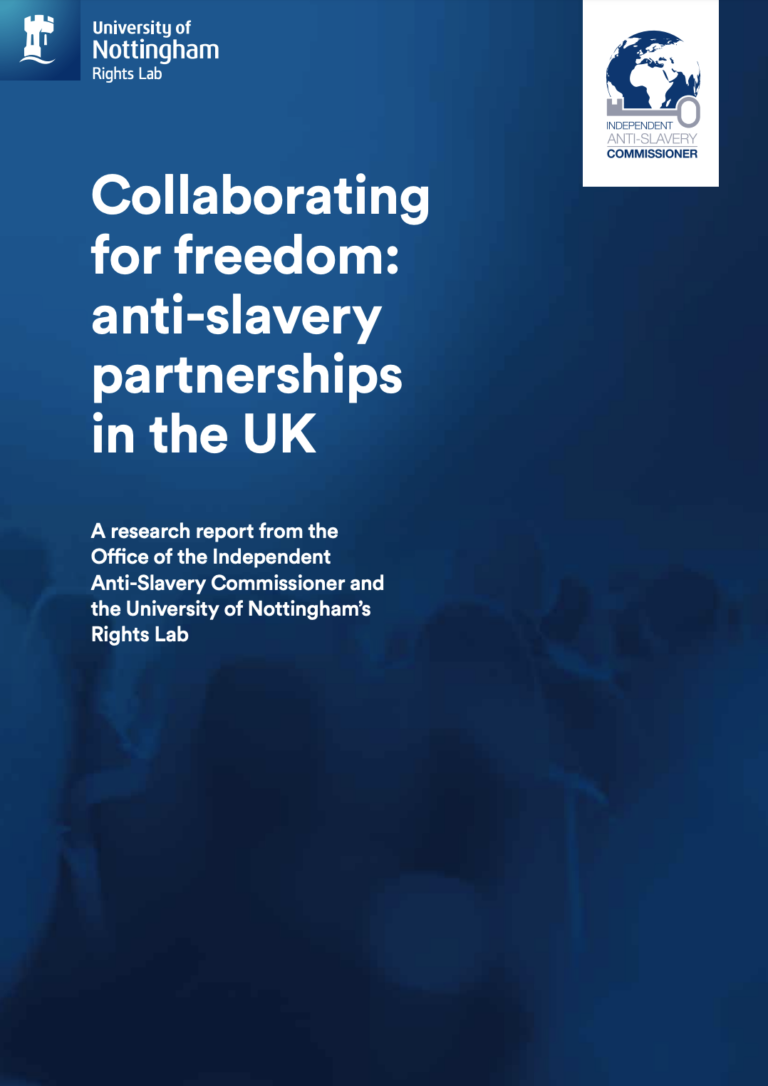2017 UK Annual Report on Modern Slavery
This Annual Report focuses on the steps the UK Government, the Scottish Government and the Northern Ireland Executive have taken in 2017 to combat modern slavery, including human trafficking.
Multi-agency partnership working is often highlighted as an essential aspect of the UK public policy response to modern slavery. The Home Office’s (2014) Modern Slavery Strategy emphasises that effective partnership work is ‘crucial’ and must include ‘greater awareness among frontline professionals, coordinated international activity, close working with the private sector and support from communities, including civil society and faith groups’.
However, despite the priority placed on partnerships by the UK Government, there has been little guidance to date on the form they should take, or how they might best identify and deliver shared goals and responsibilities. In the majority of cases there has also been no dedicated funding to facilitate partnership activity, and no means of monitoring what activity is in place. This means that until now, relatively little has been understood about the different partnership responses to Modern Slavery that are emerging across the UK.
This research report is part of a collaborative project between the Office of the Independent AntiSlavery Commissioner (IASC) and the University of Nottingham. The aim of the work was to map multi-agency anti-slavery partnerships across the UK, identify potential examples of ‘good practice’ among them and understand the conditions that helped to facilitate success.

This Annual Report focuses on the steps the UK Government, the Scottish Government and the Northern Ireland Executive have taken in 2017 to combat modern slavery, including human trafficking.
Funded by the Global Partnership to End Violence against Children through its Safe Online initiative, ECPAT, INTERPOL and UNICEF Office of Research – Innocenti worked in partnership to design and implement Disrupting Harm – a rese...Read More
The paramount objective of the Perth Forum is to harness the power of both government and business to end modern slavery. Addressing the issues of modern slavery is complex, involving a range of stakeholders, across a diverse and dynamic region.A...Read More
In September 2017, The Evening Standard and The Independent, in partnership with the Independent Anti-Slavery Commissioner, launched a three-month special investigation into the issue of modern slavery. The special investigation, which was personally...Read More
...Read More